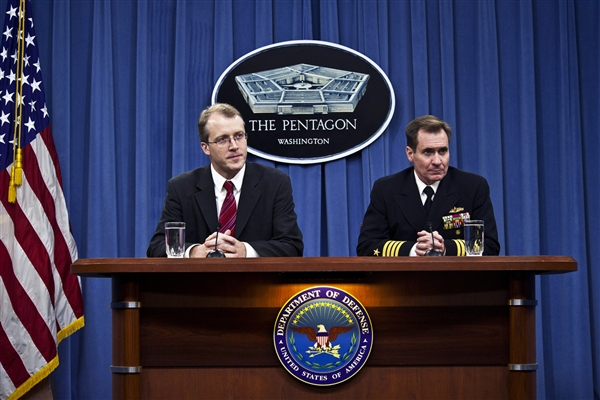Helicopters are crucial to the success of operations in Helmand, and, from medical evacuation and troop movement to resupply and ground attack, the men and women of the Joint Helicopter Force do it all. Report by Sharon Kean.
There is no average day for Camp Bastion’s Joint Helicopter Force (JHF). It is responsible for around 150 flights every day and operates five very different types of helicopters across southern Afghanistan.
The JHF may also be required to co-ordinate US flights. The day before my visit to its surprisingly small operations tent, an explosion in a busy market saw emergency response helicopters called out to lift more than 40 casualties to hospital.
With the team sometimes having to respond to more than ten emergency calls in a day, organisation is key. Squadron Leader Pez Coles, the Chief of Staff, says:
“There’s never panic here because everyone knows what they are doing. But it can get frenetic. The radios get very busy as aircraft move around theatre. Yesterday we got several aircraft to come back and pick up a medical team before going back out again immediately.
“We had two of our Chinooks flying with Medical Emergency Response Teams, two American aircraft and two Apaches overhead — one co-ordinating the aircraft and the other looking for anybody threatening them. And while those six aircraft were doing one thing, everybody else was carrying on around them. You can’t get too excited.”
It’s not just the unpredictable emergency call-outs that keep the JHF busy. There is a hectic schedule of deliberate tasking — ferrying around essential stores, kit and troops to the smaller forward operating bases across Helmand province. In most cases reaching them by road is too dangerous.
Making sure these tasks are accomplished is the overall responsibility of Wing Commander Simon Paterson, the current Commanding Officer. He oversees thousands of flying hours each month and ensures the flight and ground crews keep up-to-date with the rapidly changing demands and the environment in which troops are fighting:
“The requirement for moving people and kit around theatre is defined by the troops on the ground,” he says. “We know what we’re trying to do and the decisions made in this building are about the tactical safety of putting the helicopters out on the ground, how many are needed and the amount of support they need from the attack helicopters.”
The team can ramp things up during planned operations such as the recent Op TOR SHEZADA, during which the town of Sayedabad was taken from Taliban control.
Both aircraft and aircrew flying hours have their limits for safety reasons, and these must be managed carefully:
“We try to front-load the people and supplies out to the bases so we have some hours to spare,” explains Wing Commander Paterson, “but the requirement for helicopters and flying hours is pretty continuous and constant.”
In the event of a major emergency, do they ever simply run out of helicopters?
“On any given day, at any given moment, it’s possible to be short of aircraft,” says Wing Commander Paterson. “If everything happens simultaneously, it’s a question of prioritisation.
“Moving stores is a lower priority than the recovery of someone who’s been involved in an incident, be it a shooting or otherwise. We’ll move the helicopter to go and deal with the immediate, then return to the sustaining task that’s ongoing.”
The operations room keeps in constant contact with the battle groups on the ground using a computer-based messaging system.
A dedicated team follows the updates as they come through, passing on relevant information to the helicopter crews. This is particularly important during casualty extraction missions, which are often carried out under the highest level of threat:
“An aircraft called out to deal with a gunshot wound and landing in the middle of a firefight will come under fire,” explains Squadron Leader Coles. “We need to know exactly what’s happening, where it’s happening, and how best to get in and out of the zone.”
The JHF is a truly tri-Service outfit, with an equal mix of Royal Navy, Army, RAF and Royal Marines manning its 24/7 operation. The aircraft are similarly representative, with RAF Chinooks and Merlins, Army Apaches and Lynx, and two types of Royal Navy Sea Kings. All fly out of Bastion.
It is purely by coincidence that the current Commanding Officer is the RAF’s Wing Commander Paterson. His predecessor was an Army Air Corps officer. Whoever takes charge next will have to maintain the hectic pace of operations, which shows no signs of slowing:
“It is getting busier and there are more tasks for the helicopters,” says Wing Commander Paterson. “You manage your sleep into odd corners of the day and work for most of the rest.”
This feature by Sharon Kean is taken from the new, September 2010, issue of Defence Focus — the magazine for everyone in Defence.
Press release
Ministry of Defence, UK

 von
von 
